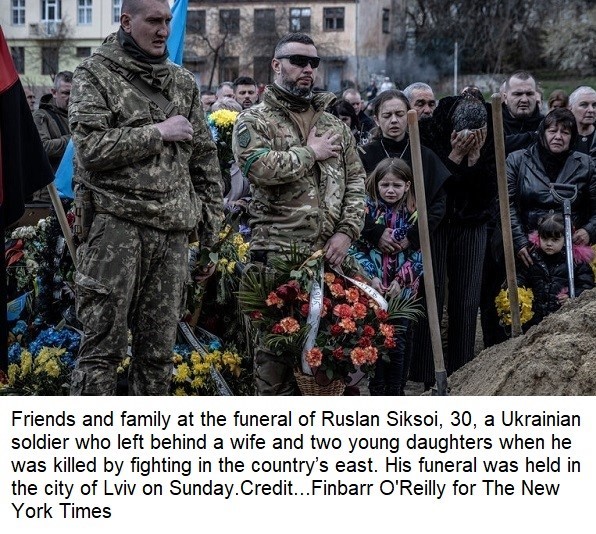| "Nationalism: seeing the future as the past" (Prof. Samuel Moyn) | ||
| xxxxxxxxxxxxxx | xxxxxxxxxxxxxx |
Why do people like to die for the nation state they are registered as citizens of & to cry about the dead?
Why do people like to die for "their country" (one nation state lump among many other nation state lumps)? Why do they send their loved ones off to die for their country and then get all weepy about getting what they asked for? Beats me. If they very sad about the consequences of what they did, all they had to do to not be crying about it was to not have done it. Isn't that obvious? What's their problem?
Their problem is that they were childreared in a not-fully human social surround, where they were taught what we might call: lump metaphysics. Everything is lumps and there is nothing else but lumps. They are lumps. Their parents are lumps (boss lumps, of course). There is no concept that the lumps are inside their living experience. They live their experience but they don't have a clue about this, like the stupid high school English teach joke about the man who was writing prose all his life but didn't know that was what he was doing. Their conception of reality is like a chess game that is played without players, or more precisely: viewed by nonexistent spectators. The earth is like the chessboard and people are like the chess pieces and they are each a piece in the game. They imagine that when they are dead all that will happen is that one piece is removed from the board. Each birth adds a new piece to the board. Why do they have rites in remembrance of the dead? Beats me. Just more moves on the big chessboard. So you die in battle? One piece removed from the board.
What does make very good sense to me is to miss those who have dies who were part of your living, like if you go broke in the stock market you miss your money. But you don't build a mausoleum for it or place a tombstone in a tombstone collection area (aka: cemetery). Childrearing could output new young persons who cognized themselves as perspectives on the world: as transcendental intersubjectivity. They would not likely know the word but they would see everything in their social surround as an objects of their free judgment. Instead, childrearing generally produces believers in the everything-including-myself-is-lumps metaphysics. Let 's try another one. You see a young middle class woman with a young child and you comment that she is a mother. She is very happy. about this. But if instead you tell her she fucked without contraception or inseminated herself with a turkey baster full of semen from some guy who masturbated, will you get the same reaction? But the two statements are denotatively congruent (cuntgruent?): they say the same thing, don't they? How people see everything is a product of their childrearing but they don't see it that way; they just see it as the way it is, another label for which is: "the obvious". So what's the big thing if you die for your country in a war? Your lumpness has some changes of attributes. So we have to risk the lives of living soldiers to retrieve the bodies of dead soldiers from no man's land because lumps are all there is. So if you die and your body is eaten by carrion birds, your lumphood is irregular in a way you have been taught not to let it because you'll be punushed by mommy and daddy lumps or The Big Lump in the Sky (Yawveh, Allah, Whatever) if you don't. Everything is lumps. Well, lumpety, lump!
My attitude? Professor Louis Forsdale died in 1997. In 2022 I still miss him a lot and I'd love to pick up the phone and speak with him again today. But would I visit his grave? What would be the point? He's not there. What I miss is part of my experience of living, like if somebody smashed a piece of fpottery that is part of my life. It's the part of my living, the transcendental intersubjectivity, to use those big words, that I miss: actually talking with Professor Forsdale and him talking back to me. Me? What's "me"? There is experience of conversation. That is real: it is a sentence which provides clear evidence for its validity. But "me"? What's that" A lump? All that matters is the living experiencing of conversation, or am I missing that I am not experinecing it. Not the lumps. So if somebody would call me a piece of shit, I would be afraid they might physically harm me, but the words? So what the shit? Lumps.
How about Mr. Rene Descartes? What payload does "cogito ergo sum" carry beyond: Thought about thinking is existing? Is it supposed to have some lump payload? We see people die, case in point, Lee Harvey Oswald terminated the living of John F. Kennedy. Living perspectives on the world do stubbornly seem to have something to do with living bodies. Inference: I do not want anybody to put a bullet through my skull, for instance, an "enemy" soldier in a war. No thank you. That way I can continue to puzzle about what "I" means, if anything besides keeping certain lump events from happening and therfore I am against dying in battle for my country. That's a lump thing, but I am not a lump unless something like that happens and then there will be no lumps because lumps are contents of [in each case my own:] consciousness. As I have previously noted, I have a cartoon from Jack Ziegler of his body being either picked up or dropped off – I forget which –, from a New York City sanitation truck, aka: trash truck, by the sanitation engineers aka garbage collectors, on the steps of St. Patrick's Cathedral. It's OK to kick a dead cat. It's OK to tread on a corpse to keep your shoes from getting wet in a mud puddle on which the corpse is lying; it is not OK to tread on a living person because that might hurt them. But, in real social life, the lump believers feel the opposite: they [only metaphorically, of course...] shit on living employees at work and living students in school, but they respect corpse lumps which may have left over fecal matter in them. This is obviously irrational. In May 2022, everybody is reacting to Mr. Zelensky's war according to the metaphysics of lumps, not experientially verifiable transcendental intersubjectivity, or simply, living persons living, or not.
So "I", to speak loosely. What is "I"? But I do not want to risk dying for an idea: "my country", which is not even an appealing idea, such as: "orgasm" or or "piece of pottery made by a living national treasure potter". And I keep thinking about what exactly transcendental intersubjectivity is. I do not passionately desire modifying my lump attributes. As far as I have figured out, trying to run away from my own shadow (my lump childrearing), I see my life as an inconsistency: lump and transcendental intersubjectivity. Is this something like the quantum physics problem that you cannot measure exactly both the position and the velocity of a subatomic particle at a given instant in time but can only have one or the other, not both?
We can cut this another way; Man is the narrative, teleological animal: He (she, other or whatever is left if them after gendre normalization surgery or genital mutilation social customs...) lives according to stories he tells himself to do something the story tells him to do. Somebody tells him the story, unless he is one of those extremely rare persons who cooks up his own story, like Jesus and Muhammad and James Jones and Charles Manson and maybe John F. Kennedy and The Reverend Martin Luther King Junior etcetera and so forth. Any story will do that the individual will go for. So his childrearers tell him to "be a man" and to "be a gentleman and protect women and children", and so he cheerfully goes off to die in the fields of Flanders to save his wife by being raped by the barbaric Huns and his children eaten alive by them, for dessert. Or, as an old Jack Ziegler cartoon had it: A woman was sitting at her kitchen table, deeply depressed. Her toaster inspires her: "You are special! You have a talking toaster!"
An experimentum crucis: You are a sailor on a nuclear submarine. You are homosexual and your true love of your life is another sailor on the same ship. The nuclear reactor is about to explode. No time for philosophical reflection. Both of you know how to fix it and nobody else does but the person who fixes it will die. Do you: (1) Embrace each other and die together (what does anybody else matter, transcententally intersubjectively, not lumpwise?), or (2) You go in and he lives but you die, or (3) You let him go in and he dies and you live?
Obviously society should be so put together as to do everything possible to avoid such situations instead of everybody jumping up and down like chimpanzees egging heroes on to die all over the place for metaphysical hypotheses, but it seems to be that no matter how hard society – that greedy monster idea that works for the benefit of the bosses and everybody else is just a human resource lump – society does not work that way at the human species's current transition point between the despicable bee hive ("Dulce et decorum est pro patria waste you life") and what it should be, which is who is writing or reading these present words is in this precise in process process: "I am who am" (Exodus 3:14). Read my short story.
 Welcome
Welcome




